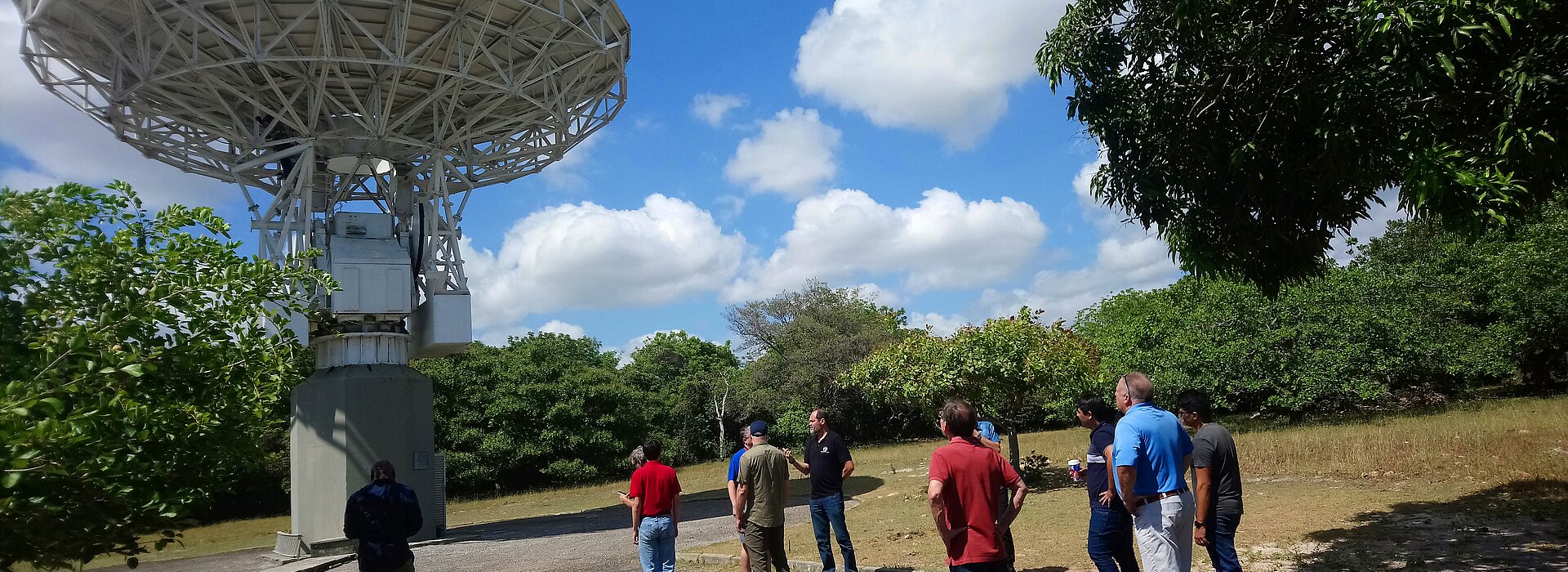
The IVS is an international research network comprised of more than 40 institutions from 21 countries from Europe, Americas, Asia, and Oceania. The involved institutions use the VLBI – Very Long Baseline Interferometry technique, or one of its components. One of IVS’ main missions is to stablish, maintain and provide for the community products such as the ICRF (International Celestial Reference Frame), the ITRF (International Terrestrial Reference Frame), and EOPs (Earth Orientation Parameters), which are crucial to our everyday activities. For example, one of the EOPs provided by the IVS is the Earth’s rotation speed, which varies in a way that the LOD (Length Of Day) isn’t exactly 24 hours. That small difference, if ignored, could result in communication loss with a lot of satellites (GPS, among others) and in resulting major damage, considering our growing dependence on technology. Similarly, the ITRF is essential to connect observations separated in time and/or space, keep track of the rising ocean levels, earth sinking and landslides, and climate changes.
IVS operates several VLBI terminal devices sub-networks, one of them being the SGP (Space Geodesy Program) network. In Brazil, the Space Geodesy activities are performed by Mackenzie/ES (Engineering School) through their center CRAAM (Center for Radio Astronomy and Astrophysics at Mackenzie), in the ROEN (Northeast Space Radio Observatory) in Eusébio, Fortaleza, CE, under signed contract between NASA and the MPI (Mackenzie Presbyterian Institute). CRAAM coordinator and affiliate member of IVS, Prof. Jean-Pierre Raulin, Prof. Carlos Guillermo Giménez de Castro, and Mackenzie’s Technical Team in the ROEN, composed by the Chief-Engineer Adeildo Sombra, and three technicians, Renato, Emerson, and Kelvin, all take part in the activities mentioned previously.
On 09/21/2022, Mackenzie’s ROEN team was honored by the IVS for their crucial contribution in the construction of the most recent version of the ITRF, the ITRF2020. The honor was granted by Dr. Stephen Merkowitz, general coordinator of SGP from NASA, with the presence of Dr. Péricles Riograndense Cardim da Silva, AEB (Brazilian Space Agency) ACI (International Cooperation Office) coordinator, and of representatives of Mackenzie’s partners, the IFCE (Federal Institute of Ceara) and UFERSA (Federal Rural University of Semi-Arid)
![Universidade Presbiteriana Mackenzie [Universidade Presbiteriana Mackenzie]](/fileadmin/CONFIGURACOES/DEFAULT_21/Resources/Public/Template/img/logo/universidade_mack_v2.svg)
